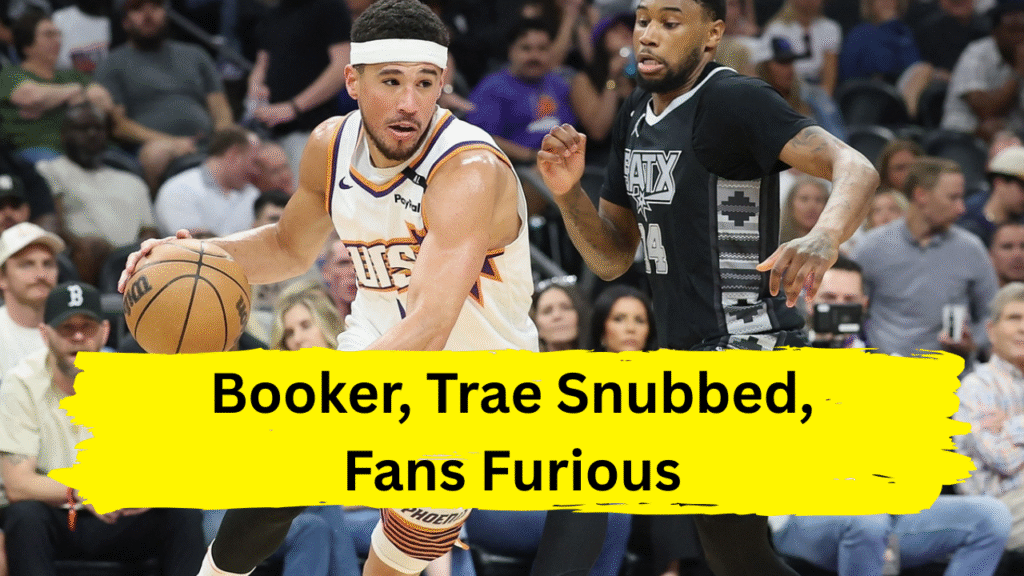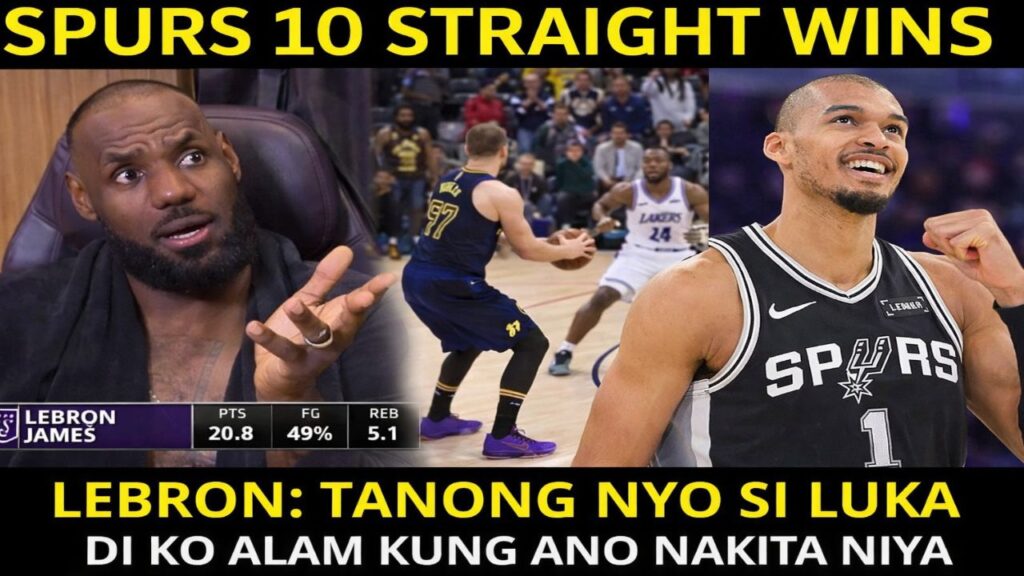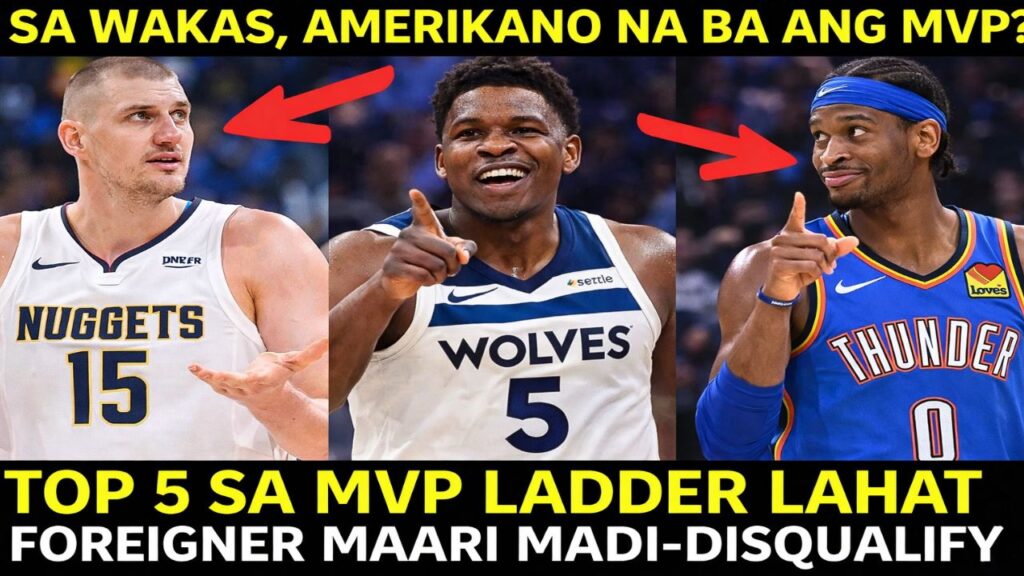The 2024-25 All-NBA teams sparked immediate controversy, not for who made the cut but for who didn’t. Despite historic performances and game-changing heroics, stars like Devin Booker, Trae Young, and Tyrese Maxey were glaringly omitted from the league’s prestigious annual honors. The outcry from fans and analysts has been swift, with debates raging over whether the voting process truly reflects on-court impact or penalizes players for factors beyond their control .
Devin Booker: Clutch Excellence Overlooked
Devin Booker’s absence from the All-NBA teams is perhaps the most baffling. The Phoenix Suns’ cornerstone averaged 25.5 points, 6.7 assists, and 1.2 steals per game while shooting 44.4% from the field and 34.1% from three-point range . But stats alone don’t capture his value. Booker’s clutch performances—14 games with 30+ points, including a 41-point explosion against the Clippers—kept Phoenix afloat in a hyper-competitive Western Conference. Under new coach Mike Budenholzer, Booker thrived as the Suns’ offensive engine, even as the team hovered near a .500 record .
Critics argue that team success shouldn’t overshadow individual brilliance, especially when Booker’s scoring efficiency and playmaking (6.7 assists per game) rivaled All-NBA Second Team selections like Stephen Curry and Anthony Edwards . His omission feels particularly egregious given his track record: a four-time All-Star and two-time All-NBA honoree whose consistency and late-game poise define modern guard play.
Trae Young: Playmaking Mastery Ignored
Trae Young’s snub is equally perplexing. The Atlanta Hawks guard led the NBA in assists (11.4 per game) while averaging 22.5 points and 1.3 steals, becoming the only non-center to record 25 double-doubles this season . Despite Atlanta’s middling 22-25 record, Young’s creativity kept the Hawks in Play-In contention, even after teammate Jalen Johnson’s season-ending injury .
Young’s frustration was palpable. After the announcement, he tweeted, “It’s no longer getting ‘snubbed,’ it’s getting ‘Traed’ at this point,” a nod to his recurring exclusion from All-Star and All-NBA honors despite elite production . Analysts like Shaquille O’Neal echoed the sentiment, calling the voting system “flawed” for undervaluing Young’s league-leading facilitation . While his scoring dipped slightly, his ability to elevate teammates—evident in Atlanta’s NBA Cup semifinal run—should have outweighed team record in a positionless voting era .
Tyrese Maxey: The Underdog’s Plight
Tyrese Maxey’s omission stung Philadelphia fans. With Joel Embiid sidelined for most of the season, Maxey carried the Sixers, averaging a career-high 27.1 points, 6.0 assists, and 1.9 steals while ranking sixth in the NBA in scoring . His 86 clutch points tied Trae Young for the league lead, including a 45-point masterpiece against the Nuggets that showcased his growth as a primary option .
Yet, the Sixers’ 19-27 record likely hurt Maxey’s case, underscoring a recurring theme: voters penalize players for team struggles, even when their contributions are transcendent. As one of only three players averaging 27+ points and 6+ assists (alongside Shai Gilgeous-Alexander and Luka Dončić), Maxey’s exclusion feels like a missed opportunity to reward perseverance .
The Criteria Conundrum
This year’s All-NBA selections were the second to eliminate positional requirements, theoretically prioritizing talent over tradition . However, the results suggest lingering biases. Karl-Anthony Towns, for instance, made the Third Team despite a -20 plus/minus in critical playoff games and defensive liabilities, while Booker and Young—statistical equals to higher-selected guards—were left out .
The 65-game minimum also played a role. Stars like Luka Dončić and Kevin Durant were ineligible due to injuries, thinning the competition and making snubs like Booker’s even harder to justify .
Fan Outcry and Legacy Implications
Social media erupted with indignation. Phoenix fans flooded NBA threads with clips of Booker’s game-winners, while Hawks supporters highlighted Young’s historic assist numbers. Even rival players weighed in, with Damian Lillard calling the snubs “disrespectful to the craft” .
For Booker and Young, the omissions carry career implications. All-NBA selections often influence contract incentives, legacy rankings, and Hall of Fame trajectories. Booker, now 28, risks being remembered as perpetually underrated, while Young’s assist titles may fade into footnotes without team success to bolster his résumé .
A System in Need of Reform?
The backlash has reignited calls for voting transparency. Unlike the All-Star Game, where fan input comprises 50% of the vote, All-NBA teams are decided solely by a panel of 100 media members . Critics argue this insular process overlooks nuanced contributions—like Booker’s clutch gene or Young’s playmaking—in favor of box-score metrics and team standings .
As the NBA evolves, so too must its awards criteria. Until then, snubs like these will remain a bitter pill for players and fans alike—a reminder that greatness isn’t always reflected in accolades.
For more details on the All-NBA voting results, explore the sources linked above.


